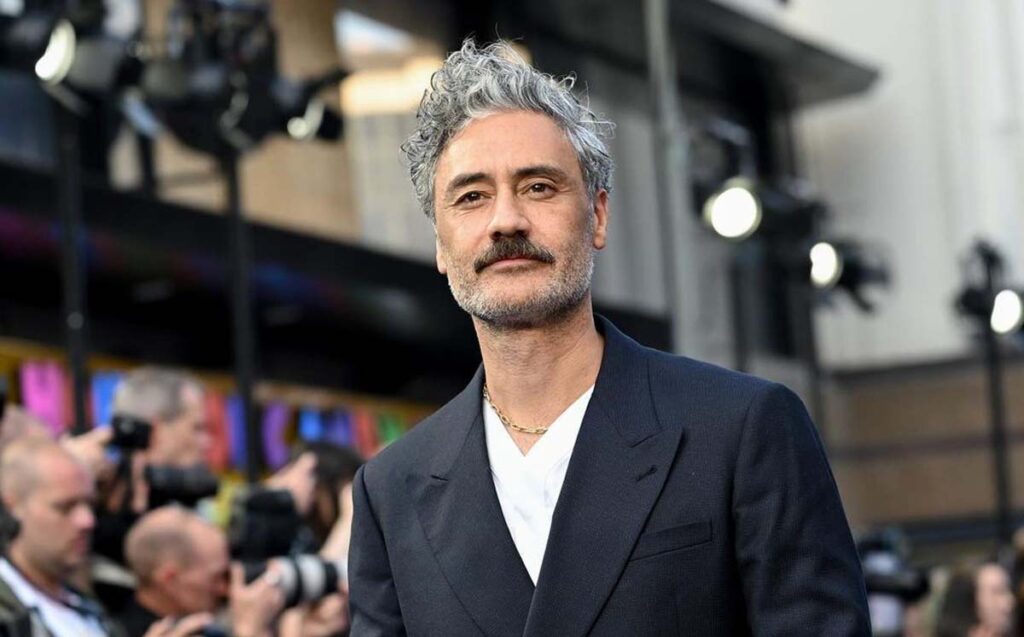
Are Taika Waititi’s movies and TV shows actually irrelevant? Let’s see
In the fast-paced world of Hollywood, where legacies are often etched in the annals of cinematic history, Taika Waititi stands as a maverick, unburdened by the need for lasting recognition. The irreverent director, known for his quirky take on filmmaking, isn’t losing sleep over whether his creations will echo through the ages.
With recent critiques of his Marvel venture, Thor: Love & Thunder, Waititi seems unfazed, setting his sights on a galaxy far, far away in an upcoming Star Wars endeavor. He candidly confesses, “What’s the name of the director of Casablanca? Arguably one of the greatest films of all time. No one knows his name. How the f-ck do I expect to be remembered?”
Taika Waititi, at 47, embraces a refreshingly pragmatic outlook, urging us to relinquish the weight of leaving an indelible mark. For him, the relentless pursuit of an enduring legacy is a fool’s errand, replaced by an eagerness to craft movies that may, as he cheekily puts it, become “obsolete and irrelevant in 15 or 20 years.”

The Maverick’s Manifesto: Taika’s Take on Legacy
It’s a philosophy that challenges the very essence of Hollywood’s obsession with perpetual remembrance. In an industry where egos inflate faster than a helium balloon at a birthday party, Taika Waititi is the pin that pricks the pretentiousness. At a spry 47, the director looks the concept of cinematic immortality dead in the eye and delivers a shrug that could rival Atlas’.
“People are so obsessed with likes or leaving behind a legacy, being remembered,” he quips, his words dripping with the nonchalance of a surfer catching a wave. His sentiment is clear: why waste precious moments fretting over a future that’s as unpredictable as a cat on a skateboard? With the audacity to compare himself to the forgotten maestro behind Casablanca, Waititi toasts to the impermanence of it all.
His devil-may-care approach is a slapstick comedy in itself, as he muses, “Here’s the thing: No one’s going to remember us.” His candid contemplation is both refreshing and subversive, puncturing holes in the often inflated balloons of Hollywood self-importance. Yet, amidst the cheeky veneer lies a kernel of wisdom. The auteur nudges us to question the relentless pursuit of an everlasting legacy.

From Jojo Rabbit to Next Goal Wins: A Journey Through Waititi’s Worlds
Waititi’s cinematic repertoire is a tapestry woven with threads of audacity and originality. From the poignant satire of Jojo Rabbit to the uproarious high-seas comedy of This Flag Means Death, Waititi’s creations possess an uncanny ability to leave an indelible mark on the viewer’s psyche. While he jests about their longevity, these works stand as a testament to his unique storytelling prowess.
Taika Waititi doesn’t direct movies; he crafts wild rollercoaster rides through alternate realities. If you thought that was a cinematic curveball, wait until you step into the zany universe of “Next Goal Wins,” where football dreams and island idiosyncrasies collide like never before. It’s like letting a bunch of rowdy Kiwis loose in a soccer stadium – expect the unexpected!
With Waititi at the helm, you’re not just watching a movie; you’re strapped into a kaleidoscope of creativity. His films don’t tiptoe; they tap dance on the edge of convention. Jojo Rabbit was an uproarious satire that made us laugh at the absurdity of hate, while Next Goal Wins promises to be a jubilant celebration of the beautiful game, spiked with Waititi’s trademark quirkiness.
—
Taika Waititi’s irreverence towards the trappings of cinematic posterity is a breath of fresh air in an industry obsessed with leaving an indelible mark. For him, the present moment is paramount, and the future is a realm of delightful uncertainty. As his upcoming projects promise to push boundaries and shatter norms, Waititi’s legacy may not be etched in stone, but it’s certainly inked with the vibrant hues of creativity.



